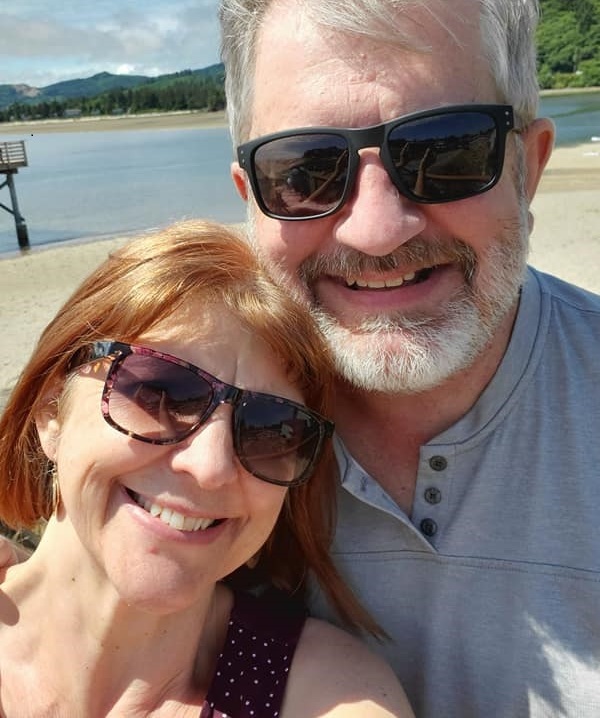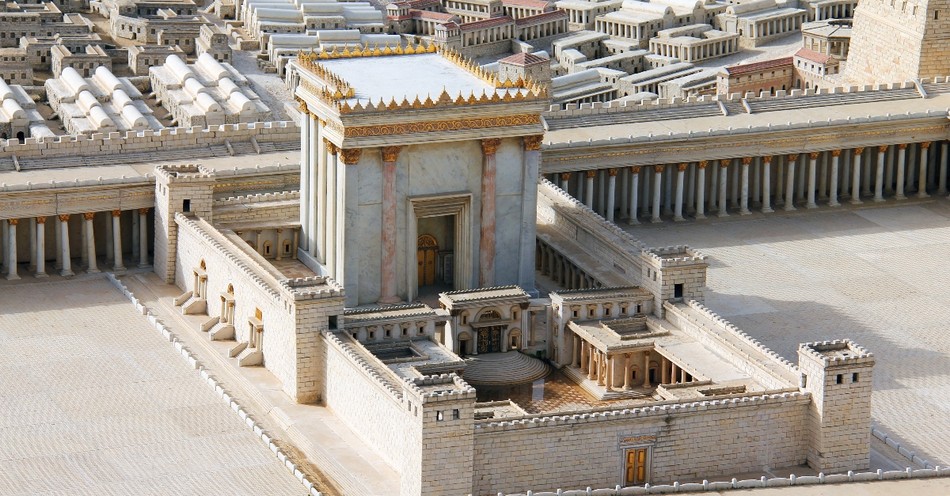We don't hear the name Haggai float around Christian circles too much these days. Christians can't seem to have one pronunciation for this minor prophet, and many of us, off the top of our heads, couldn't say what he's known for. But every book in the Bible has an important purpose. Let's take a look at the story of Haggai and what message God gave him to deliver to the Israelites after they'd returned from decades of captivity in Babylon to a broken and scattered city in Jerusalem.
Who Was Haggai and What Is the Book of Haggai About?
Haggai’s name essentially means “Let’s celebrate the Lord!” Haggai is the first of three prophets to exhort, encourage, and inspire God’s people after the Babylonian captivity. Before they can celebrate big-time, they need to repent of their misplaced priorities. Here’s why...
Although more than fifty thousand forsake their idolatrous ways, return to the land of
Judah, and start to rebuild the Second Temple, they have not wholeheartedly committed themselves to serving the Lord.
Eventually, the preparatory work laying the temple foundation stops. Years go by. Nothing happens. Then the Lord gives Haggai a series of five messages for the leaders of His people.
Haggai was a prophet who lived during the time of the rebuilding of the second temple. For context, the Israelites had turned away from the Lord and turned to their political allies instead. This becomes an issue when Assyria and Babylon rise to power, and the political alliances can do nothing to stop these global superpowers. Assyria takes over the Northern Kingdom of Israel and Babylon sacks the Southern Kingdom of Israel. Israel spends 70 years in captivity before they return to Jerusalem. Haggai steps onto the scene when they return to Jerusalem. His book contains hopeful messages from God about Israel's future.
When Does the Book of Haggai Take Place?
After standing tall for 374 years, Solomon’s temple was destroyed 66 long years prior to these messages. It’s clearly time to rebuild!
The Lord gives all five messages to Haggai between August 29, 520 BC, and December 18, 520 BC. How do we know? Haggai records each date, not just the verbatim messages themselves.
The brevity of time (less than four months) shows how quickly the leaders needed to say yes to the Lord and take action.
The Lord isn’t just hinting. He’s commanding, commending, and promising to bless. (So, they can celebrate big-time!)
The Five Messages for Jerusalem’s Leaders
1. The Lord exhorts the governor and high priest and the people to consider their miserable plight and start building the Second Temple (1:1-11).
2. The Lord commends them for obeying Him
Then Haggai, the Lord’s messenger, gave this message of the Lord to the people: “I am with you,” declares the Lord. So the Lord stirred up the spirit of Zerubbabel son of Shealtiel, governor of Judah, and the spirit of Joshua son of Jozadak, the high priest, and the spirit of the whole remnant of the people. They came and began to work on the house of the Lord Almighty, their God, on the twenty-fourth day of the sixth month (1:13-15).
3. The Lord urges them to take courage even though the huge task before them seems impossible (2:1-9).
4. The Lord promises to bless His people from that day forward (2:10-19).
5. The Lord promises to bless the governor in the future (2:20-23).
What Happens in the Book of Haggai?
The people are quick to obey the Lord, embrace His encouragement, and claim His wonderful promises.
True, they experience some fierce opposition from their pagan neighbors. But... the Persian king, Darius, comes to their aid and generously supports the rebuilding of the Second Temple.
How good that we can thank the Lord daily for His sovereignty (greatness) and providence (guidance and goodness). What initially looked terribly troubling ended up largely underwriting the costs of the new temple.
So, what happens after December 18, 520 BC? The good news is...
With Haggai’s ongoing exhortations and hope-filled encouragements, and Zechariah’s as well, the Jewish people complete all of the work on the Second Temple in less than five years.
They then dedicate the new temple and celebrate the Passover big-time with great joy and rejoicing. You’ll find this “rest of the story” in Ezra 5–6, especially Ezra 5:1-2 and Ezra 6:14-15.
If only God’s people always would respond that way to His messages!
Are you willing to do just that today?
Faith Affirmations for Today
I do not neglect my relationship with the Lord in order to fulfill my own wants and needs in my own strength and worldly ways (Haggai 1:4). That never works.
I know difficult circumstances can be a result of my disobedience to the Lord (Haggai 1:9). So, I obey Him, trust Him through thick and thin, and celebrate the Lord and His wonderful goodness to me.
I ask the Lord to stir my heart to obey Him actively and enthusiastically (Haggai 1:14). Thankfully, He is more than happy to motivate and strengthen me.
I take courage in the Lord’s presence whenever my efforts to obey Him seem to produce puny results (Haggai 2:4). After all, God’s always doing great things.
I believe the Lord one day will shake the heavens and the earth and fill His temple with treasures and glory (Haggai 2:6; Hebrews 12:26-27). What a day that will be!
I do not refuse to return to the Lord when He disciplines me (Haggai 2:17). Instead, I turn away from my sins and turn back to God quickly and completely.
I believe the Lord will bless me and always meet my needs as I step out in obedience to Him (Haggai 2:19). His abundant promises are all I need.
Famous Verses in the Book of Haggai
“Why are you living in luxurious houses while my house lies in ruins?” (Haggai 1:4 NLT; Haggai 1:9).
“Look at what’s happening to you!” (Haggai 1:5,7, NLT; Haggai 2:15,18).
“You have planted much but harvest little” (Haggai 1:6, NLT).
“The whole remnant of God’s people began to obey the message from the LORD their God” (Haggai 1:12, NLT).
“The people feared the LORD” (Haggai 1:12, NLT).
“I am with you, says the LORD!” (Haggai 1:13, NLT).
“And now get to work, for I am with you, says the LORD of Heaven’s Armies” (Haggai 2:4, NLT).
“In just a little while I will again shake the heavens and the earth, the ocean and the dry land” (Haggai 2:6 NLT; Haggai 2:21).
“I will fill this place with glory, says the LORD of Heaven’s Armies” (Haggai 2:7, NLT).
“The silver is mine, and the gold is mine, says the LORD of Heaven’s Armies” (Haggai 2:8, NLT).
“The future glory of this Temple will be greater than its past glory” (Haggai 2:9, NLT).
“From this day onward I will bless you” (Haggai 2:19, NLT).
“I will make you like a signet ring on my finger” (Haggai 2:23, NLT).
For further reading:
What Is Idolatry in the Bible? Its Definition and Significance
How to Live Out Faith Found in Hebrews 11
How Was the Old Testament God’s Love Letter to His People?
Who Were the Major and Minor Prophets in the Bible?
Photo Credit: ©iStock/Getty Images Plus/flik47










